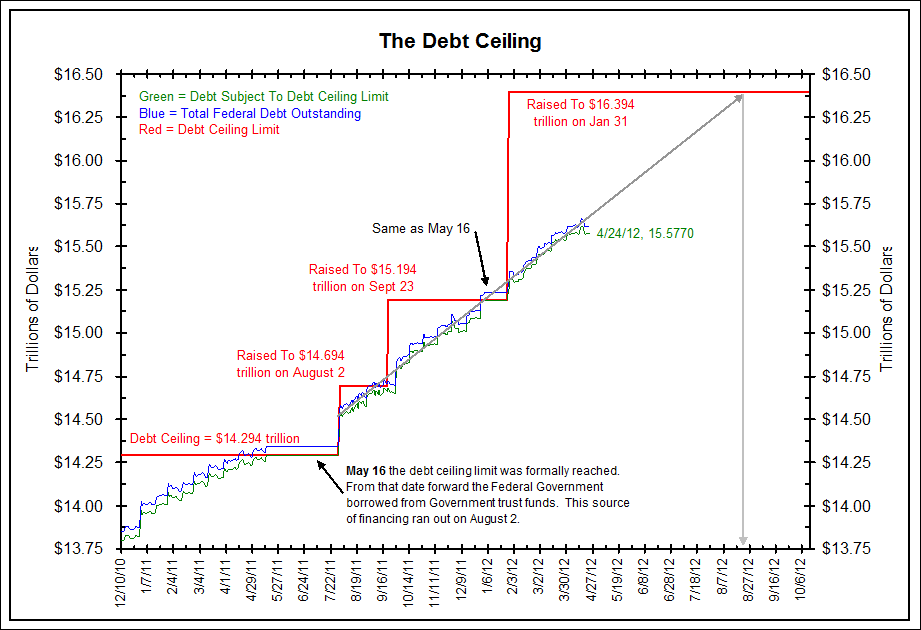Reuters – ‘Fiscal cliff’ makes U.S. Fed queasy
Federal Reserve policymakers are sounding the alarm over a “fiscal cliff” at the end of this year, when scheduled U.S. tax hikes and spending cuts could pose a big threat to the fragile economic recovery. Along with its official mandate of watching unemployment and inflation, the U.S. central bank is keeping a close eye on a potentially debilitating political fight over how to fix the budget deficit. If lawmakers in Washington do not get rid of the tax hikes and spending cuts due to take effect in early 2013, the country could easily careen into another recession. Any moves by Congress, however, aren’t expected until after the November 6 presidential election. The Fed is worried that individuals and companies could hunker down and curb spending, making markets antsy as the country awaits the outcome of an election that could pave the way for new tax and spending policies. Though few expect Washington to do nothing while fiscal policies push the economy into another downturn, partisan politics could undermine the Fed’s unprecedented actions to revive the economy. “I have been disappointed that the president and Congress are not taking action until after the election,” St. Louis Fed President James Bullard told reporters in Utah last week.
Comment
As the chart below shows, the debt ceiling should be hit around Labor Day. Why not 2013 as projected? Bluntly, the deal negotiated by the super committee (remember them??) did not raise the debt ceiling enough to push this issue off until after the election. How is this possible? The federal government is spending money faster than originally projected. On Meet The Press on April 15, Geithner said the U.S., “won’t hit its debt limit again until late in the year.” 2013 is off the table.
Once this ceiling is hit, Geithner can steal borrow from some government trust funds to help fund the government. In 2011 Geithner borrowed enough from trust funds to keep the government going about eight weeks before the debt ceiling had to be raised (see “May 16″ below).
How long do we go after we reach the debt ceiling later this year? If Obama thinks it is in his best interest to push the issue, Geithner will say the Treasury has “run out of options” by mid-October and let it explode in the Republicans’ faces. If Obama decides it is not in his best interest to push the issue, the administration will find ways to fund the government through the election. This gives the Republicans an opening to hammer Obama on fiscal responsibility. Remember that this issue helped form the Tea Party, who in turn helped the Republicans win 61 House seats in 2010 (the most in 70 years). Either way, this will be an issue for the November election.
All the talk about a “fiscal cliff” is both right and wrong. It is right in that there is one coming and it has to be dealt with. However, many incorrectly believe this will only be an issue after the election. As the chart below shows, current rates of spending could make this a critical issue just prior to the November elections.
Click to enlarge:
Source: Bianco Research



What's been said:
Discussions found on the web: